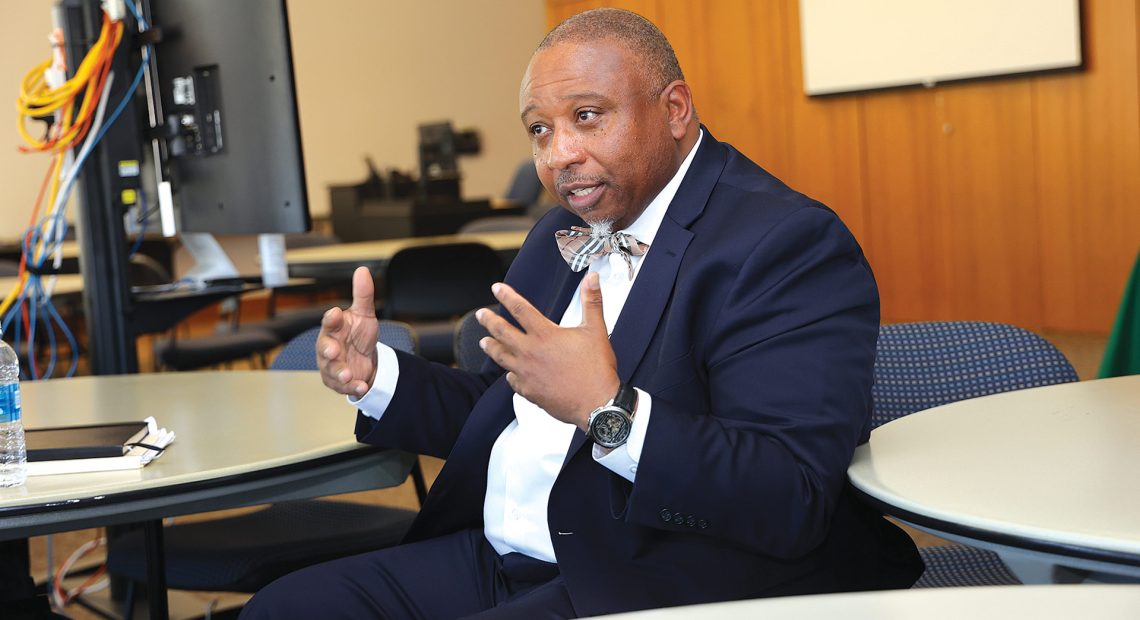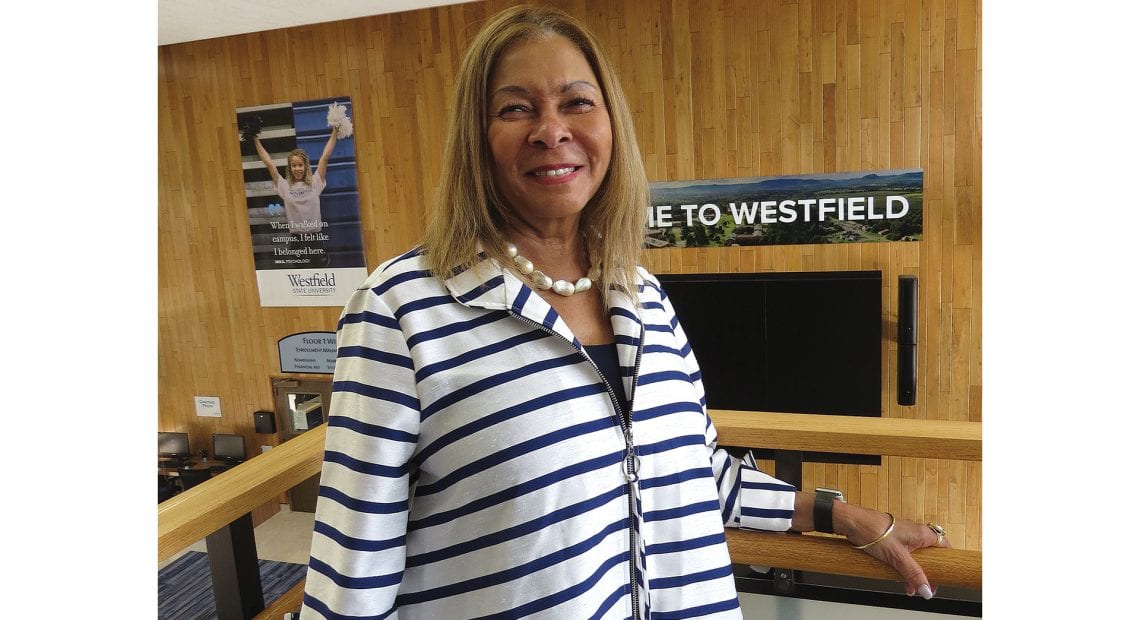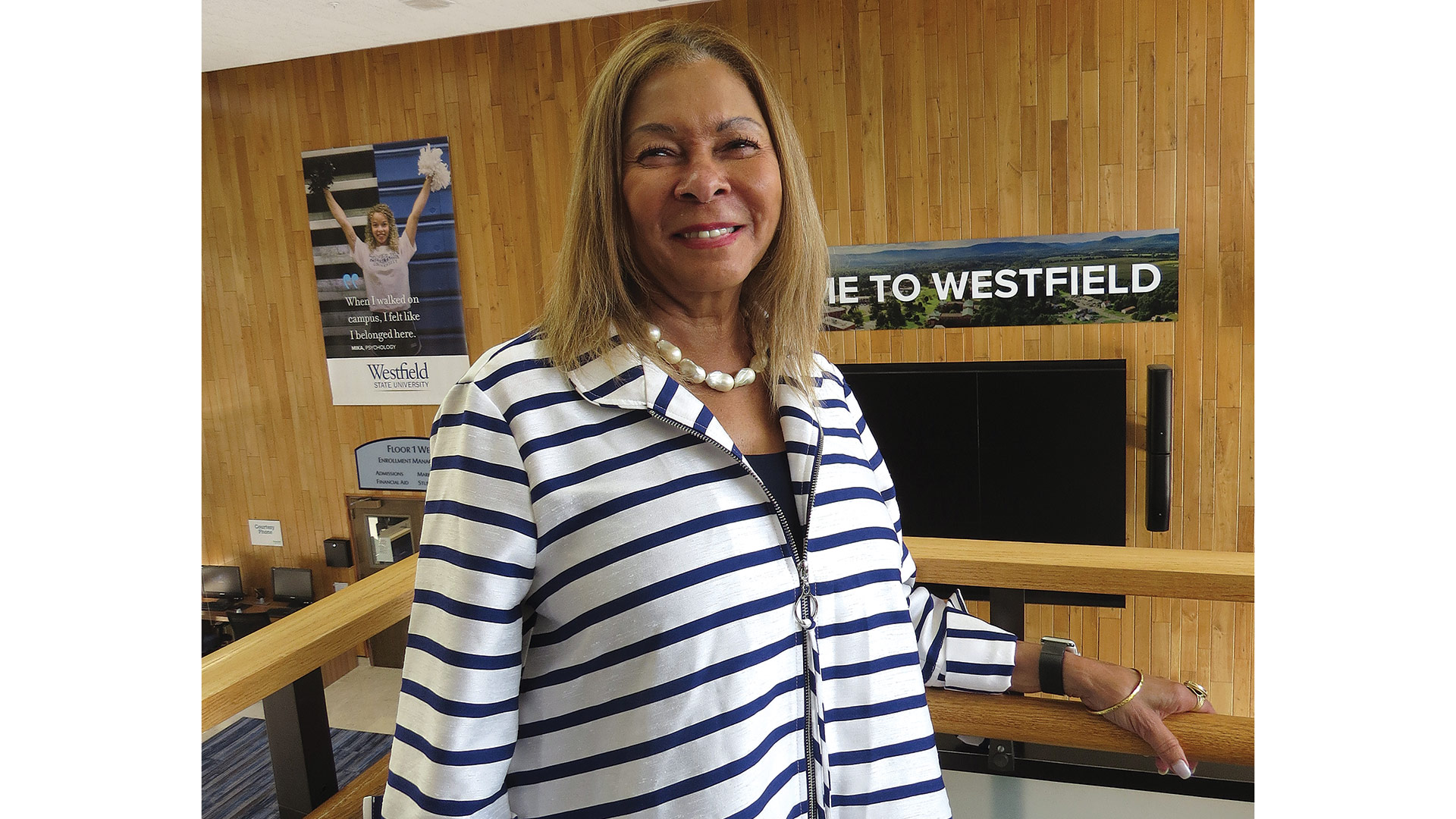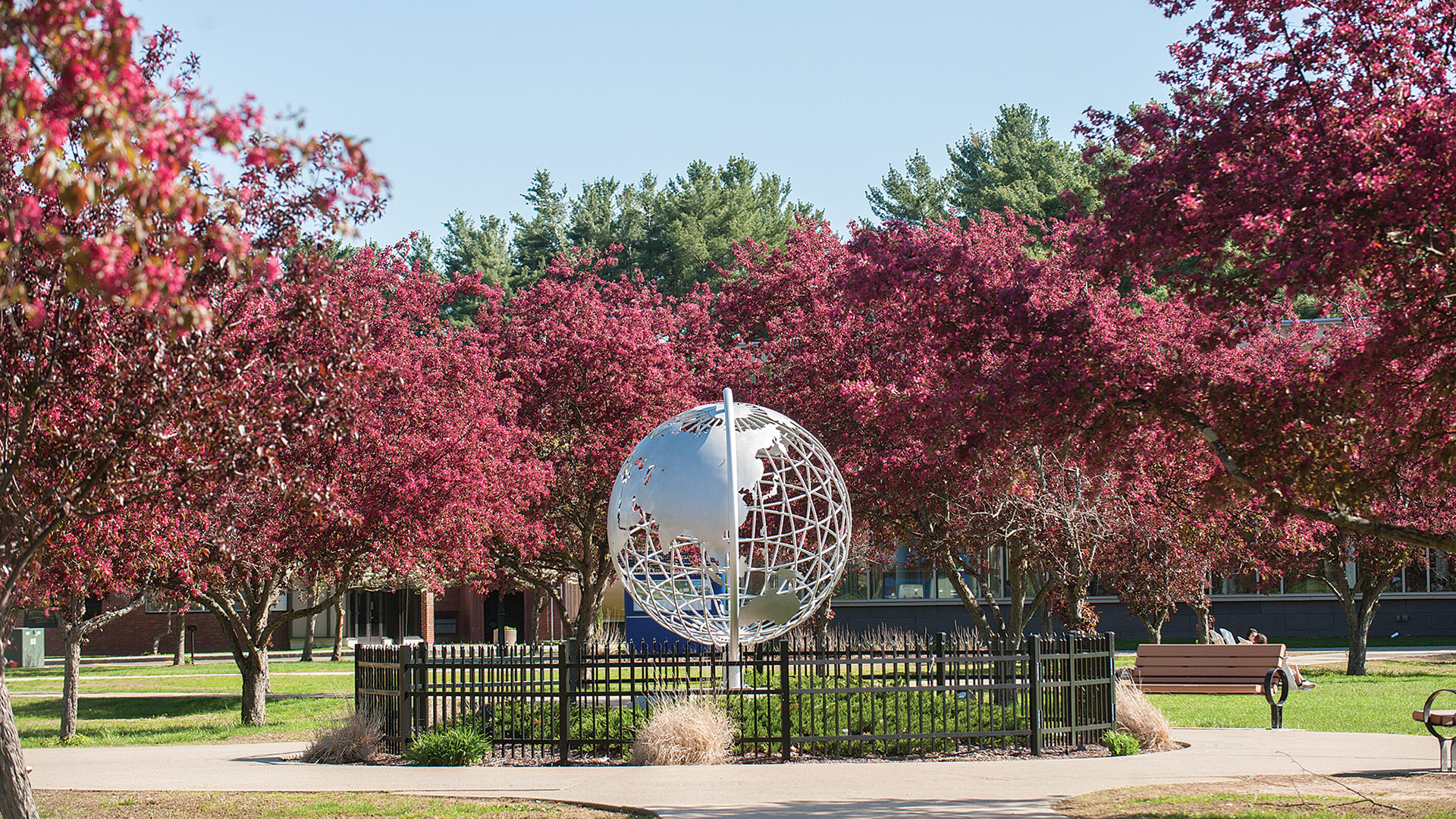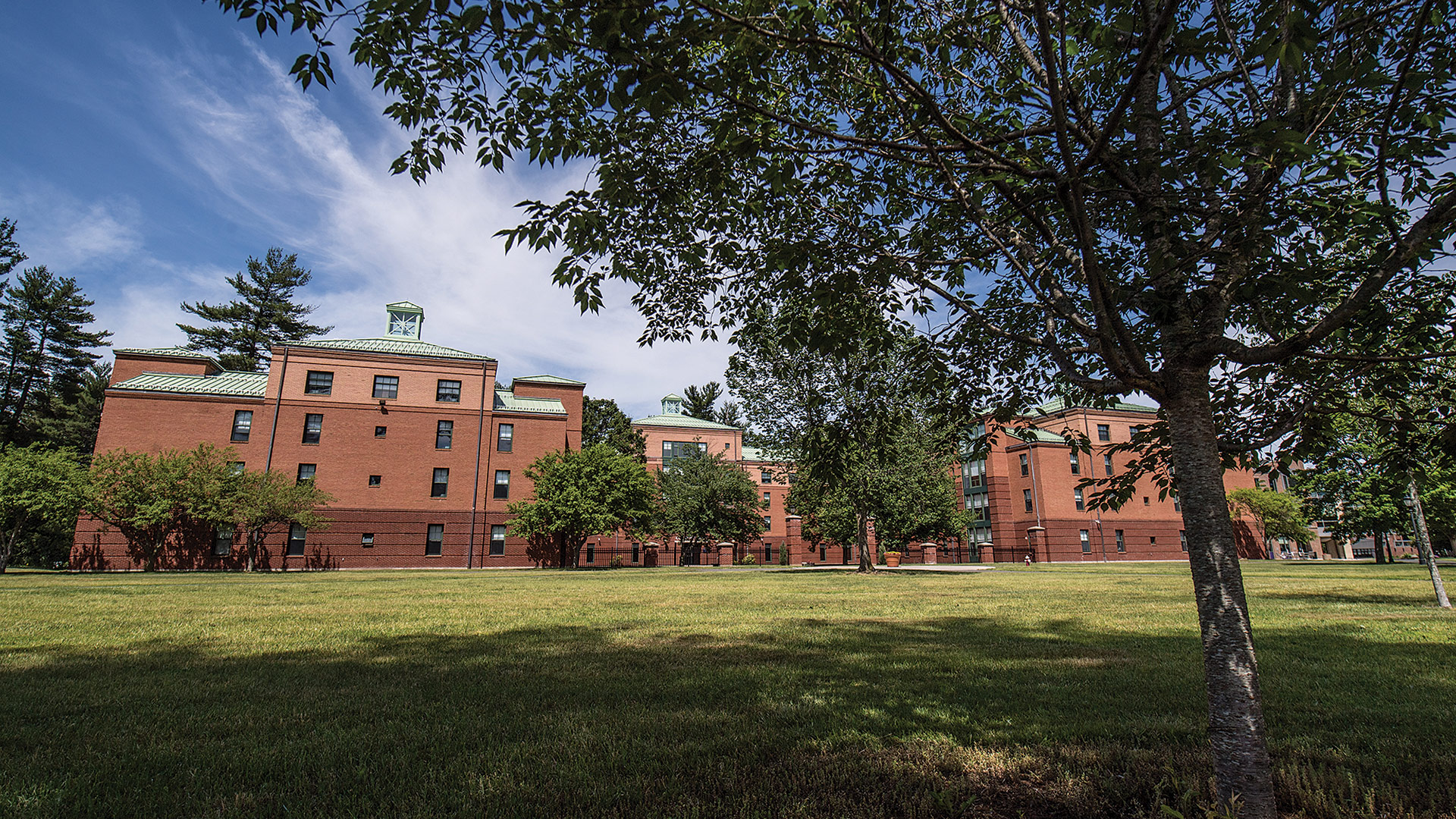A Calling to Serve
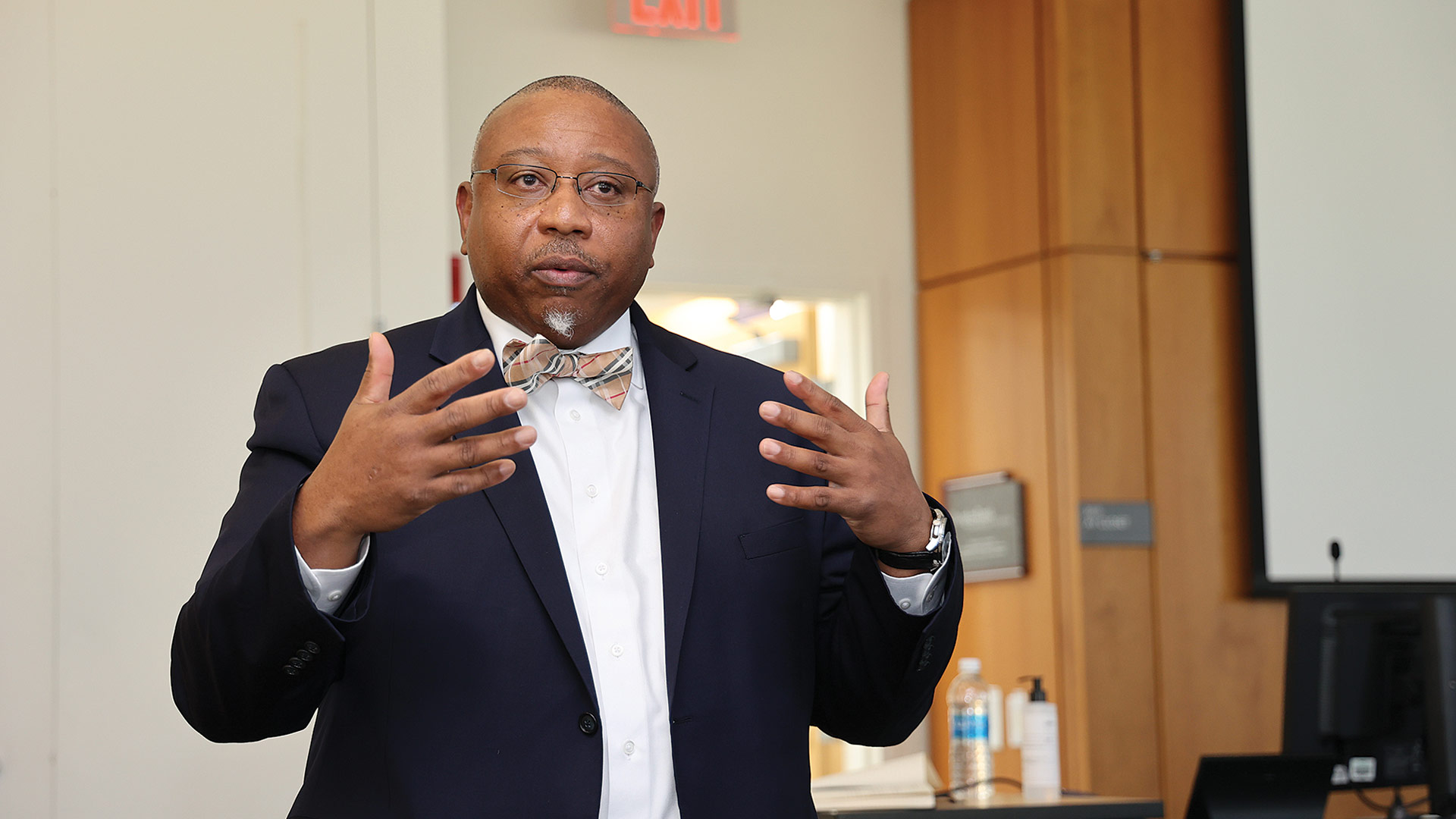
George Timmons
George Timmons recalled a conversation he had a with a friend — a college president and mentor — several years back. He had a simple question for him.
“I asked him, ‘doc, how to you know when you’re ready?” he recalled, meaning, in this case, ready to become a college president himself.
The answer wasn’t quite what he expected.
“He said, ‘George, you’ll know when you know you’re ready,’” he said. “And I used to say, ‘what do you mean?’”
Timmons said he would eventually come to understand what his friend meant — that there would come a time, after years of preparation, earning needed degrees, and working in different jobs that would provide learning experiences and the ability to hone leadership skills … when he would know that he was ready.
He said he reached that time a few years ago and soon began to at least consider jobs that carried that designation. But — and this is a big but — he stressed that he wasn’t chasing a title.
“When I looked at the student profile, I couldn’t help but be reminded of my roots, my humble beginnings, and where I came from; I’m a first-generation college graduate.”
“It was really about chasing the right opportunity that allowed me to demonstrate the skills and talents that I have that aligned with the needs of the organization and where I thought I could really add value,” he said. “For me, it’s really important that I’m at an institution where I can bring value and that I connect with, and be able to take it to a new level of excellence.”
And that’s what he saw when Holyoke Community College (HCC) began its search for someone to succeed Christina Royal last fall.
Specifically, it was the presidential profile, and especially its student profile, one that showcased a diverse population featuring a large percentage of first-generation college students, that caught his attention.
“When I looked at the student profile, I couldn’t help but be reminded of my roots, my humble beginnings, and where I came from; I’m a first-generation college graduate,” he told BusinessWest. “Also, with 48% students of color … that was very attractive to me, and would allow me to add value, particularly with an emphasis on equity and student success. I saw myself in that student profile.”
Fast-forward several months — we’ll go back and fill in all the details later — and Simmons is winding down his work at provost and senior vice president of Academic and Student Affairs at Columbia-Greene Community College in Hudson, N.Y., getting ready to start at HCC the middle of next month.
Upon arriving, he intends to embark on what he called a “soft launch of a listening tour,” one that will involve several constituencies, including students, faculty, staff, area elected officials, and members of the business community.
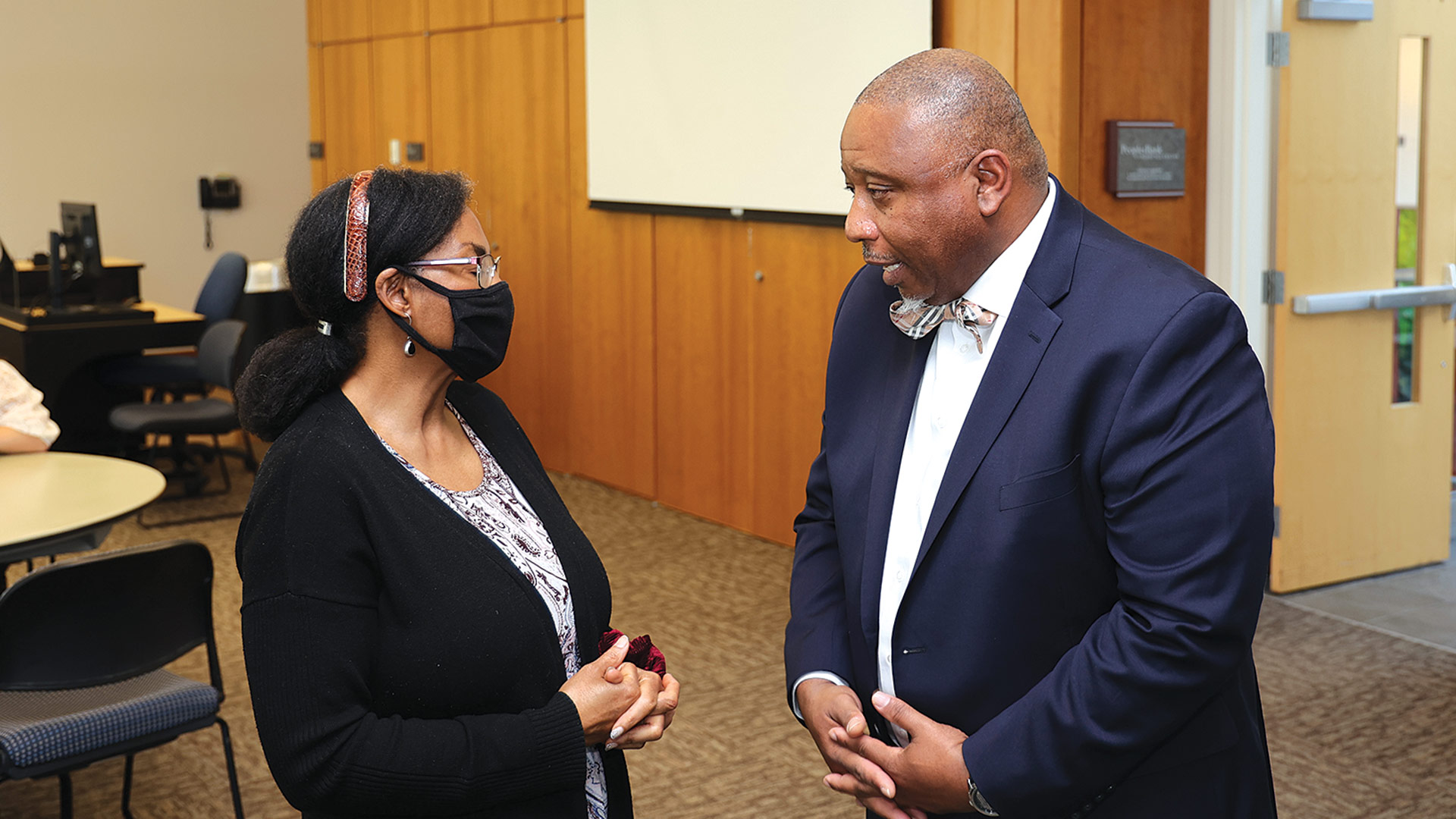
George Timmons says it’s important to hear from all constituencies — from students, faculty, and staff to local officials and business people — early in his tenure.
“I think it’s important to hear from the stakeholders who are present, as well as getting into the community, meeting members of the business community and key stakeholders, to hear what they have to say and understand their views on the college and where they see areas of opportunity. I think it’s important that I immerse myself in the community to understand and learn where there are challenges and opportunities, get to know people, and build relationships.”
Elaborating, Simmons said that, overall, he wants to build on all that Royal has been able to accomplish at HCC — everything from bold strides on diversity, equity, and inclusion to a food pantry and a student emergency fund — while putting his own stamp on the oldest community college in the state, one that recently celebrated its 75th anniversary.
For this issue and its focus on education, BusinessWest talked at length with Timmons about his new assignment, what brought him to the HCC campus, and what he hopes to achieve when he gets there.
Course of Action
Timmons told BusinessWest that, during one of his visits to the HCC campus for interviews, he was given a 90-minute driving tour of the city by perhaps the best-qualified person in the region to give one.
That would be Jeff Hayden, vice president of Business & Community Services at HCC and former director of Planning & Economic Development for the city.
“He’s a great tour guide,” Timmons said. “He’s a history guy, and I love history and people who like history — and there is a lot of it in Holyoke.”
The tour of the city pretty much confirmed what Timmons said he already knew — that this was a community, and a college, that he wanted to be part of, one that would provide that opportunity that he spoke of, and not merely a title.
His journey to the Paper City has been an intriguing one, and it began not far from here.
“She made me understand that, when you want to achieve a goal, it really doesn’t matter what others say or if other people will support you. Only one person gets to decide whether you will achieve that goal — and that’s you.”
Indeed, Timmons said he grew up in the Hartford area, and was essentially raised by his grandmother, who instilled in him a number of values, including the importance of education.
“She made me understand that, when you want to achieve a goal, it really doesn’t matter what others say or if other people will support you,” he recalled. “Only one person gets to decide whether you will achieve that goal — and that’s you.
“I made a commitment to myself at a very early age that no one was going to outwork me when it came to me achieving my goals,” he went on. “Those values shaped who I am today.”
Timmons has spent more than 25 years working in higher education in several different realms, from academic support services to online education; from working with adult learners to roles in both academic affairs and student affairs.
“I have a really broad breadth and depth in higher education that allows me to have a comprehensive view of a college,” he noted, adding that he believes his diverse résumé will serve him well as he takes the proverbial corner office at HCC, becoming just its fifth president in 75 years.
Timmons, who earned a bachelor’s degree in financial management at Norfolk State University in Virginia, a master’s degree in higher education at Old Dominion University in Virginia, and his Ph.D. in higher education administration at Bowling Green University in Ohio, started his career in academia in 1996 at Old Dominion as a site director at a satellite campus as part of a groundbreaking program called TELETECHNET. It provided the opportunity for students to earn bachelor’s and master’s degrees at remote locations through the use of satellites and televisions with two-way video connections, a precursor of sorts of the remote-learning programs that would dominate higher education during the pandemic.
Later, he served as assistant dean of Adult Learning at North Carolina Wesleyan College before being recruited to be the founding dean of Online Education and Learning Services at Excelsior College in New York.
He served in that role for several years before becoming provost for Online Education, Learning, and Academic Services, and also serving later as dean of the School of Liberal Arts.
During that time in his career, he was able to take part in a number of professional-development opportunities, including the Harvard MLE program, as well as the American Council of Education Fellowship Program and the Aspen Rising Presidential Fellowship, which is focused on preparing community-college presidents.
“I’ve really had the opportunity to learn and hone my skills,” he explained. “I think it’s important that you learn your craft — it’s a journey; you continue to work to get better and strive to be better. There’s always room for improvement, and so it’s really important that you stay current and abreast of the trends in higher education to be effective.”
After his lengthy tenue at Excelsior, he became vice president of Academic and Student Affairs at Columbia-Greene Community College, a role that carried many responsibilities, including student affairs, athletics, events planning, partnership development, and more.
It was at some point during his tenure at Columbia-Greene that he reached that point his friend and mentor alluded to: when he knew he was ready to become a college president. But as he mentioned earlier, it’s one thing to be ready, but finding the right opportunity is something else altogether.
“I’m very selective — I’m not chasing a title,” he told BusinessWest. “I say this humbly, but I could have been a president a few years ago if I was just chasing a title. It was really important for me to align myself with an institution that I could have longevity with, and I believe Holyoke Community College allows me the opportunity to plant roots in Western Mass. and work with the board of trustees, the faculty, students, staff, and administrators to carry out its mission.”
Grade Expectations
Which brings him back to that that profile of HCC and how it resonated with him, personally and professionally.
“I actually felt a call to serve — that’s when I knew. I felt I was ready based on what they were looking for and my background; I felt like that profile was calling me.”
And after several rounds of interviews, those conducting the search for a new president would ultimately decide to call him — literally.
And as he winds down at Columbia-Greene, he is looking ahead to July and using his time before the fall semester starts to learn more about the school, the city, the region, and the challenges and opportunities that lie ahead.
There are plenty of both, but especially opportunities, he told BusinessWest, adding that, in this time of skyrocketing costs in higher education and ever-greater emphasis on value, community colleges are an attractive alternative — as a place to start, and often as a place to finish.
“Community colleges are, to me, a great pathway to a better life,” he said. “And when you consider that almost half of all students who are in higher education are enrolled in a community college, I don’t think that’s by accident, because there’s fair criticism about the cost of higher education and how prohibitive it is for some members of community to go to college. The community-college mission of access is one that I cannot underscore enough.
“Community college is a great way to get a quality, affordable education to advance one’s social mobility, and with minimal debt,” he went on. “It gives people a great foundation that prepares them to transition to a four-year institution or to go into the workforce and earn a livable, sustainable wage. That’s why community colleges are near and dear to my heart; thay are an important pathway to the middle class.”
Getting back to that aforementioned listening tour, Timmons said listening is a huge part of what could be called his management style. Other parts include transparency, being collaborative, fostering excellence, and more.
“As a contemporary leader in higher education, you should have a broad and comprehensive leadership style grounded in transformational, collaborative, and servant leadership,” he explained. “And by that, I mean encouraging people, inspiring them, knowing how to listen, building community, leveraging mutual respect for one another … these are all vital aspects of the leadership needed to advance an institution’s success.”
Elaborating, he stressed the importance of knowing how to transform “in a way that is acceptable, but that also challenges the culture to stretch and grow.
“And to do that, you have to be able to listen, respect your colleagues, understand why things were done the way they were, and, without judgment, maybe ask the question, ‘how can we be better?’” he went on. “As people, we can always be better, and as institutions, we can always be better. So what does that look like?
“You also have to stay current with what’s happening in our space,” he continued. “You have to continually ask, ‘are we remaining competitive, and are we meeting the needs of our students and the community?’”
When asked how someone masters that art of listening, he said simply, and with a laugh, “the key is not to talk.”
Instead, “you listen by seeking input and asking questions and giving people a platform to at least share their opinions, their thoughts, and their expertise,” he went on. “One of things I want to do coming in is listen to key stakeholders and say, ‘historically, what have you liked most about the institution, where do you see areas of opportunity, and if you could make a change, what would it be?’ And then you start to look at themes, see what themes emerge, and use that to guide your next steps.”
There will be a number of next steps for Timmons, who at first didn’t really grasp that he would know when he was ready to be a college president.
Eventually he would understand what his mentor was saying, and he did know when was ready — not for a job or a title, but for a real opportunity to make a difference.
And that’s what he intends to do at HCC.



